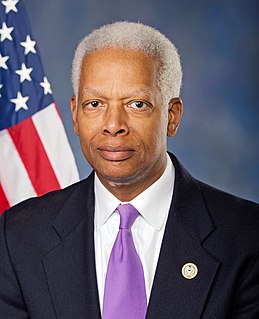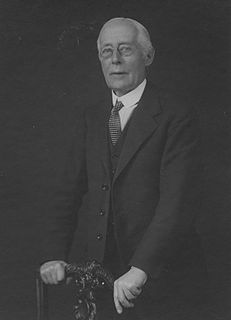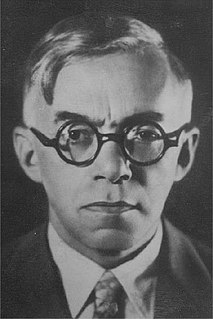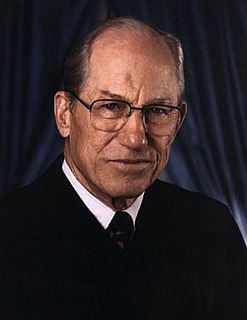A Quote by Joseph Smith, Jr.
And that law of the land which is constitutional, supporting that principle of freedom in maintaining rights and privileges, belongs to all mankind, and is justifiable before me. Therefore, I, the Lord, justify you, and your brethren of my church, in befriending that law which is the constitutional law of the land.
Related Quotes
Good and wise men, in all ages, have embraced a very dissimilar theory. They have supposed that the deity, from the relations we stand in to himself and to each other, has constituted an eternal and immutable law, which is indispensably obligatory upon all mankind, prior to any human institution whatever. This is what is called the law of nature....Upon this law depend the natural rights of mankind.
I believe in absolute freedom of conscience for all men and equality of all churches, all sects and all beliefs before the law as a matter of right and not as a matter of favor. I believe in the absolute separation of church and state and in the strict enforcement of the Constitution that Congress shall make no law respecting an establishment of religion or prohibiting the free exercise thereof I believe that no tribunal of any church has any power to make any decree of any force in the law of the land, other than to establish the status of its own communicants within its own church.
The common law of chattels, that is to say, the law ultimately adopted by the King's courts for the regulation of disputes about the ownership and possession of goods, was, to be a substantial extent, a by-product of that new procedure which had been mainly introduced to perfect the feudal scheme of land law.
The law is equal before all of us; but we are not all equal before the law. Virtually there is one law for the rich and another for the poor, one law for the cunning and another for the simple, one law for the forceful and another for the feeble, one law for the ignorant and another for the learned, one law for the brave and another for the timid, and within family limits one law for the parent and no law at all for the child.
Much of the Constitution is remarkably simple and straightforward - certainly as compared to the convoluted reasoning of judges and law professors discussing what is called 'Constitutional law,' much of which has no basis in that document....The real question [for judicial nominees] is whether that nominee will follow the law or succumb to the lure of 'a living constitution,' 'evolving standards' and other lofty words meaning judicial power to reshape the law to suit their own personal preferences.
US law and international human rights law have radically diverged in the past years in terms of the recognition of indigenous people's rights. International human rights law now looks at not whether or not the tribes have formal ownership or legal title in a Western legal conception might have it, but rather they look at the tribe's historical connection to that land.
When I was at Notre Dame studying under Joe Evans, Frank O'Malley, and others, there was a very lively debate about the distinction between natural law and revealed truth. Most of the philosophers of church and state expected that what was going to be advocated as the law of the land would be related to natural law. If you attempted to draw lines about certain general moral truths that were derivative of logic and reason, they would prove to be widely shared, and therefore suitable to be enacted into law on both the civic and religious sides.
The Court is most vulnerable and comes nearest to illegitimacy when it deals with judge-made constitutional law having little or no cognizable roots in the language or design of the Constitution.... There should be, therefore, great resistance to ... redefining the category of rights deemed to be fundamental. Otherwise, the Judiciary necessarily takes to itself further authority to govern the country without express constitutional authority.






































